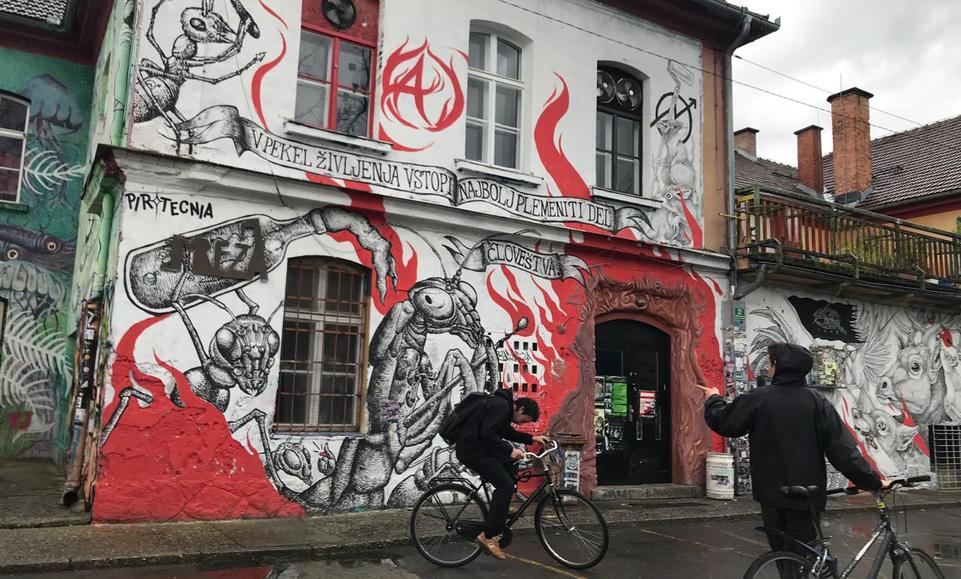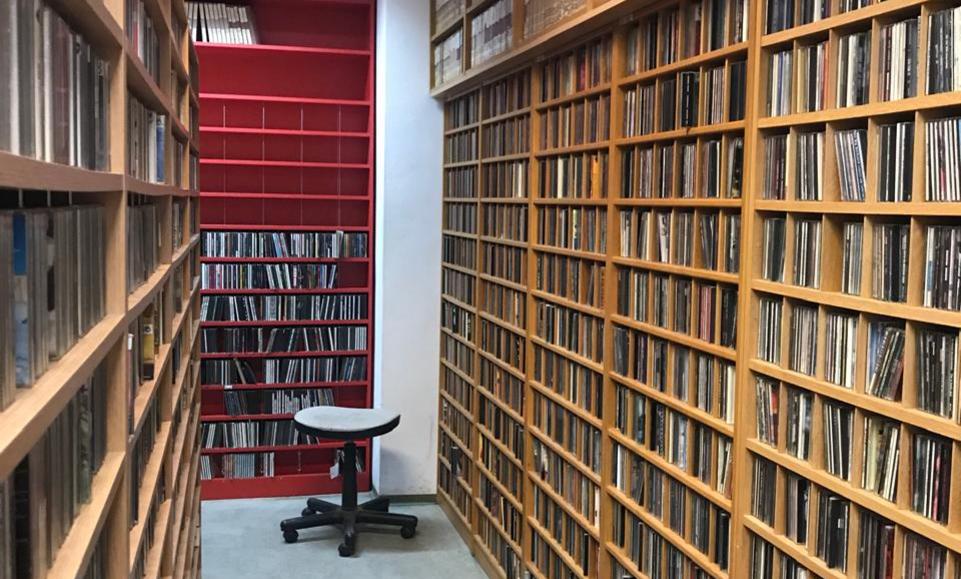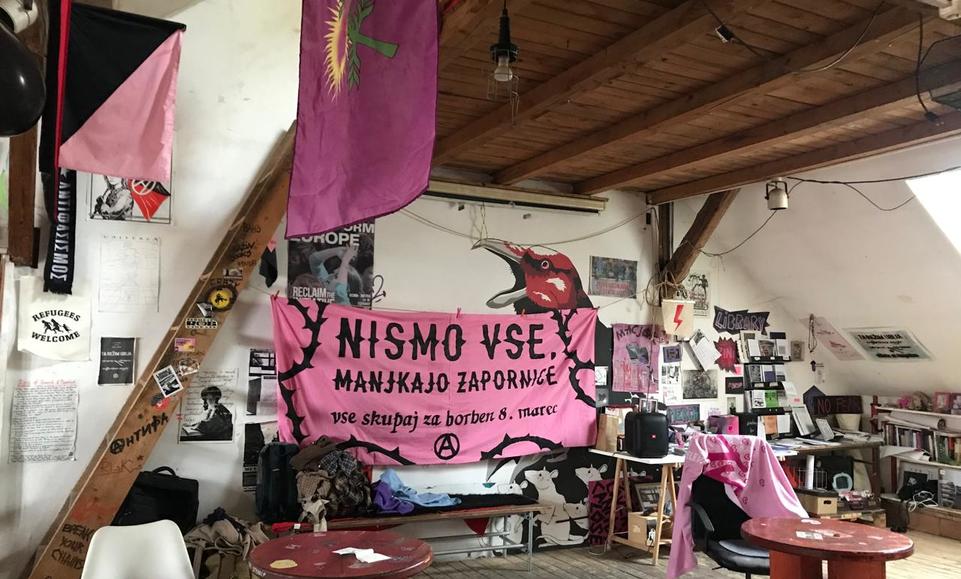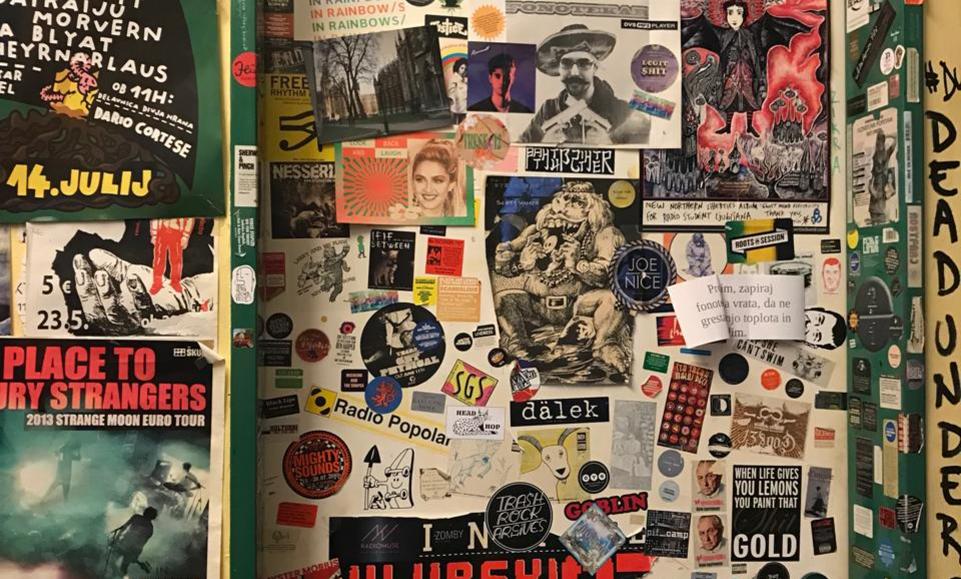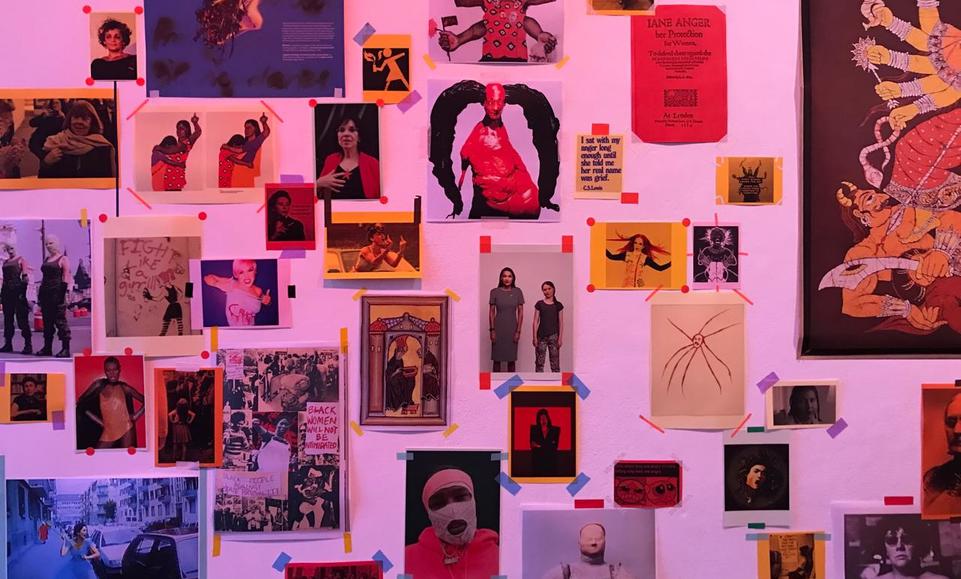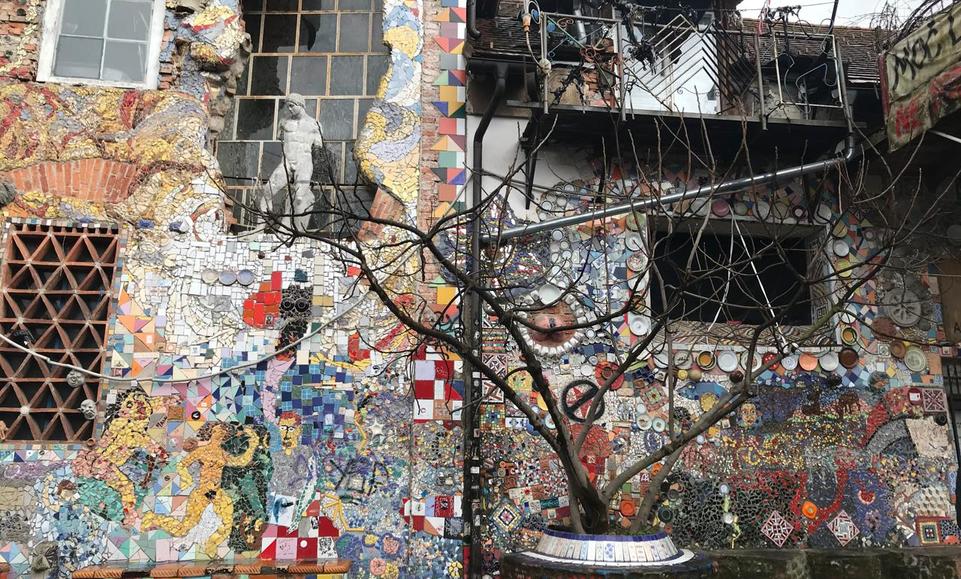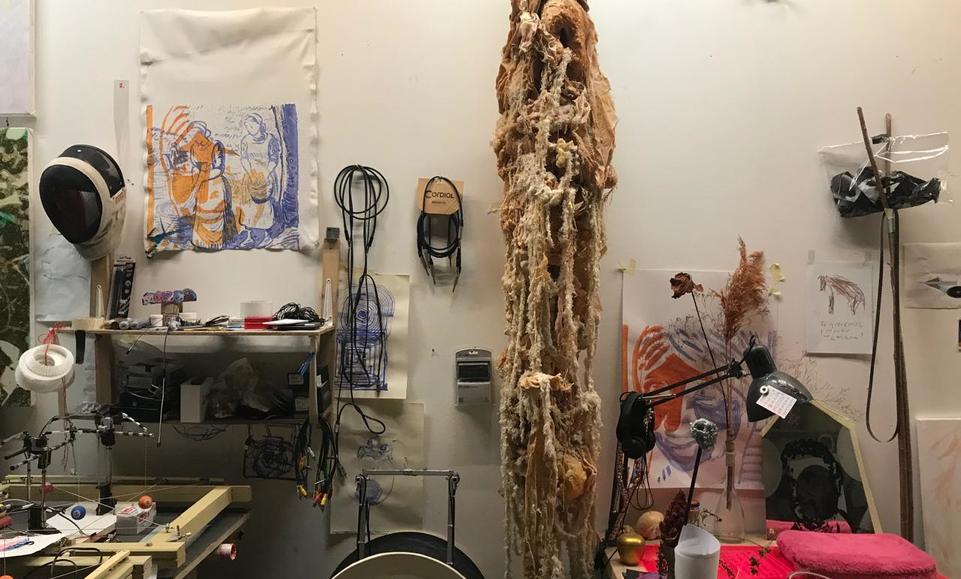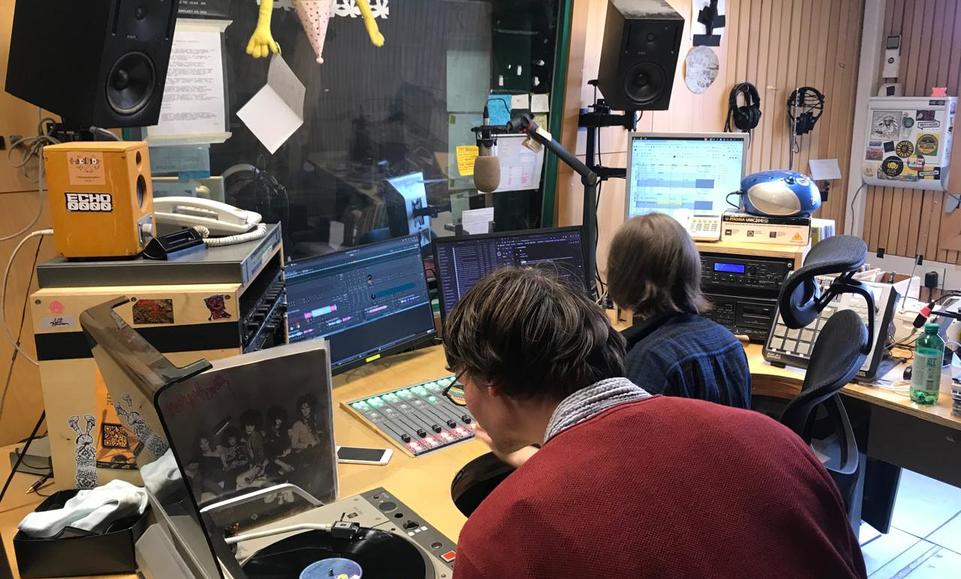Experiences in Slovenia so far have felt so full - layered with the discourse of the people who are active in the independent and alternative cultural scene here, with my experience of the novelty and multiplicity of practices in this new context, comparisons to the scene in my own country and my own emotions and manner of witnessing myself here.
We had several visits and meetings throughout the week - naturally I brought myself, lived reality, wishful reality, an observation (if anything) of the differences in action and inaction between the countries' civic engagement and a constant intent to observe myself in this new context. I read through the research produced by O.PEN on the independent cultural scenes in Kosovo, Slovenia and Croatia. Several things pop into my mind, which don't allow me to see the report for what it is: an objective look into the situation in the three countries. I notice I have somewhat of a bleak view of the cultural scene in my country. I notice we have and use different terminologies, or there are words that are not part of our vocabulary. And so, I keep looking at every meeting in terms of what does self-organized, community-run and participation in public space means and/or looks like in Slovenia and in Kosovo? How is it different?
One main difference is that we don't have an abundant scene of squatted places in Kosovo and that showing up unusually and reclaiming public space is either minor or nonexistent. There are no circus or street theatre groups in Kosovo that I'm aware of, and neither are there many examples of creative and political activism that takes to the street.
I find it interesting, in general, when communities or individuals aren't able to easily verbalize what their principles or values are. In my work within collectives, it has proven to be integral that we choose our wording and become clear on it, and in the process establish a collective understanding of our vision and way of working.
Following up on my interest in circus and theatre, we met Mistral who is part of the organizing team of ImproLiga, an improvisational theatre initiative which has been organized since the 90's and offers improv classes in 300 schools over the country. The day before, a new friend from Slovenia was mentioning to me they were part of this. I find it so valuable to provide such classes in school programs, since it is my belief and an integral part of my work to offer and provide various means and creative practices for everyone. I see it as a collective need in my home country for emotional processing and therapeutic work.
We also met Vid from Radio Student. They have been doing impressive work for decades. He made a distinction between the terms independent student radio and community radio when people refer to the radio. He was in favor of the latter. When asked what makes this a community radio, he responded that no outside organization is involved in editorial or business decisions. I found this an interesting principle of work. I also thought it's interesting that Radio Student does not have a written, strict general framework or guidelines but that these principles are established yearly by the editorial board according to the current needs.
We also had meetings at Cirkulacija 2 and Metelkova. The first is a collective which experiments with art, design and technology, offering a public program and functioning as an organisation in public interest. I saw a solo performance at Cirkulacija 2 premises the weekend before. I was deeply immersed into it and found the performer's movements fascinating, and since I'm not often exposed to such pieces in Kosovo, the focus of which was also on an enmeshment with the earth, the body and ecology, it was interesting for me to hear from others that the contents of the performance were something that's commonly seen for them.
Metelkova is an example of squatting, community-run space and 'grey areas' in the city that I find so wild to comprehend. We visited some of the clubs, artist studios and the anarchist collective info shop. I heard oftentimes people raising concerns about this dichotomy of, on one side, managing a space and funding it from tickets and bar cashflow (which would then allow it to be functional and independent from seeking other funding), and on the other side, becoming inaccessible due to having to raise ticket prices, which then proposes this argument that for a space to be accessible to the community it needs to be free of charge and not based on spending money.
All this time, I am mindful of how critical I am of my own culture, and then speaking of how deprived and fragmented a culture of vouching for and community reclaiming of public spaces in my country is. I am wary of speaking in such a manner in a different cultural context and how (positively or negatively) one represents their own culture, but I am speaking to my own cultural upbringing within me, if anything.
We also held artist talks with Ismail at the Layer House - where we are currently staying. It was so good to finally speak about where I'm coming from with my impressions and manner of observing and interpreting what I find here. Though, I am still saddened by this overbearing gap between how one brings their own histories in another place and the histories of that place and the difficulty of mediating between the lives a pair of people have had, before meeting each other in one place.
Meeting Nika from Kudljud was a highlight for me. Kudljud is an interactive outdoor theatre collective who've been in the scene for many years. It was quite valuable to hear about their work and allude to possible recipes between scripting of a performance and reacting in real time when performing in public space, since this is my current focus. At some point, she mentioned how when she was asked who are you, she'd respond: "I'm just someone, but there are a lot of us". I love this.
